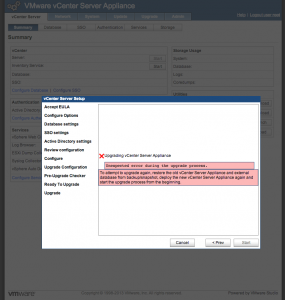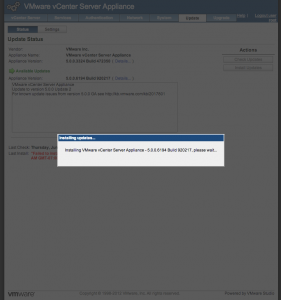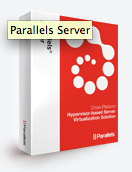Recovering A Corrupt OpenLDAP Database On OSX Server
Last night we noticed some services provided by an OSX Leopard Server instance were not working correctly. The iChat, AFP and Web services were not authenticating. In Server Admin.app, the “Overview” tab of the Open Directory service reported…
LDAP Server is: Not Running
Password Server is: Running
Kerberos is: Not Running
Looking at the server error logs through Console.app, the following was occuring every 10 seconds..
com.apple.launchd[1] (org.openldap.slapd[27382]) Exited with exit code: 1
com.apple.launchd[1] (org.openldap.slapd) Throttling respawn: Will start in 10 seconds
The slapd daemon appeared not to be starting. Jumping to the command line, I tested the configuration using the `slapd -Tt` command.
core:openldap admin$ sudo /usr/libexec/slapd -Tt
overlay_config(): warning, overlay “dynid” already in list
overlay_config(): warning, overlay “dynid” already in list
overlay_config(): warning, overlay “dynid” already in list
overlay_config(): warning, overlay “dynid” already in list
overlay_config(): warning, overlay “dynid” already in list
bdb(dc=openrain,dc=com): PANIC: fatal region error detected; run recovery
bdb_db_open: Database cannot be opened, err -30978. Restore from backup!
bdb(dc=openrain,dc=com): DB_ENV->lock_id_free interface requires an environment configured for the locking subsystem
backend_startup_one: bi_db_open failed! (-30978)
slap_startup failed (test would succeed using the -u switch)
http://discussions.apple.com/message.jspa?messageID=9548971
With a little research, I concluded that..
The OpenLDAP database had been corrupted, and..
The `slapd_db_recover` tool (as present on some Linux installations) is instead named `db_recover`. Ah!
After carefully backing up the /var/db/openldap folder, I ran the recovery tool and re-tested the configuration..
core:openldap admin$ sudo db_recover -h /var/db/openldap/openldap-data/
core:openldap admin$ sudo /usr/libexec/slapd -Tt
overlay_config(): warning, overlay “dynid” already in list
overlay_config(): warning, overlay “dynid” already in list
overlay_config(): warning, overlay “dynid” already in list
overlay_config(): warning, overlay “dynid” already in list
overlay_config(): warning, overlay “dynid” already in list
config file testing succeeded
The errors in Console.app stopped, and the Server Admin.app panel started reporting..
LDAP Server is: Not Running
Password Server is: Running
Kerberos is: Not Running
I had to restart the AFP, iChat and Web services on the machine to get everything working again, but all seems well now.
Last night
we noticed some services provided by an OSX Leopard Server instance were not working correctly. The iChat, AFP and Web services were not authenticating. In Server Admin.app, the “Overview” tab of the Open Directory service reported…
LDAP Server is: Not Running
Password Server is: Running
Kerberos is: Not Running
Looking at the server error logs through Console.app, the following was occuring every 10 seconds..
com.apple.launchd[1] (org.openldap.slapd[27382]) Exited with exit code: 1
com.apple.launchd[1] (org.openldap.slapd) Throttling respawn: Will start in 10 seconds
The slapd daemon appeared not to be starting. Jumping to the command line, I tested the configuration using the `slapd -Tt` command.
core:openldap admin$ sudo /usr/libexec/slapd -Tt
overlay_config(): warning, overlay “dynid” already in list
overlay_config(): warning, overlay “dynid” already in list
overlay_config(): warning, overlay “dynid” already in list
overlay_config(): warning, overlay “dynid” already in list
overlay_config(): warning, overlay “dynid” already in list
bdb(dc=openrain,dc=com): PANIC: fatal region error detected; run recovery
bdb_db_open: Database cannot be opened, err -30978. Restore from backup!
bdb(dc=openrain,dc=com): DB_ENV->lock_id_free interface requires an environment configured for the locking subsystem
backend_startup_one: bi_db_open failed! (-30978)
slap_startup failed (test would succeed using the -u switch)
- The OpenLDAP database had been corrupted, and..
- The `slapd_db_recover` tool (as present on some Linux installations) is instead named `db_recover`. Ah!
After carefully backing up the /var/db/openldap folder, I ran the recovery tool and re-tested the configuration..
core:openldap admin$ sudo db_recover -h /var/db/openldap/openldap-data/
core:openldap admin$ sudo /usr/libexec/slapd -Tt
overlay_config(): warning, overlay “dynid” already in list
overlay_config(): warning, overlay “dynid” already in list
overlay_config(): warning, overlay “dynid” already in list
overlay_config(): warning, overlay “dynid” already in list
overlay_config(): warning, overlay “dynid” already in list
config file testing succeeded
The errors in Console.app stopped, and the Server Admin.app panel started reporting..
LDAP Server is: Running
Password Server is: Running
Kerberos is: Running
I had to restart the AFP, iChat and Web services on the machine to get everything working again, but all seems well now.



 We
We